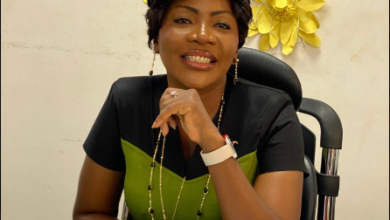
|
Getting your Trinity Audio player ready...
|
Reverend Esther Ajayi has said women must change their mindset on women being just a child bearer and a cook. She said this during an interview tagged, “The Mindset of the Nigerian Woman Has to Change,” Oguntoye Nifemi posed the question to Reverend Esther Ajayi, “Why are we having few women in our politics?”
Reverend Esther Ajayi responded to the question saying, Nigerian women have to change their mindset.
The number of women holding a political office in Nigeria’s current political landscape is a mere 5% of federal legislative seats, a figure that places the nation among the lowest globally in terms of female political participation. This stark underrepresentation formed the core of the interview between the Oguntoye Nifemi and Reverend Esther Ajayi.
The interviewer pointed out the apparent contradiction between women’s prominent roles in religious leadership and their limited presence in the political sphere. The interviewer went further asking, “If you can be a pastor as a woman, why are we having less women in our politics?”
This question brings to the open the puzzle of why women can attain positions of power and influence within religious institutions, yet face significant barriers in the political arena. The fact that Nigeria has yet to have a democratically elected female governor further emphasizes the scale of the challenge.
Reverend Ajayi suggested that traditional gender roles, which often confine women to domestic duties like “kitchen and child bearing,” continue to impede their political ambitions. However, she also expressed a strong belief that this is changing, stating, “It’s changing. If I can take the floor, every woman, we are all coming up.”
Another crucial aspect of the discussion focused on the dynamics of female voter behaviour. The interview touched upon the perception that women sometimes fail to support female candidates, opting instead for male contenders. However, Reverend Ajayi countered this by emphasizing a growing sense of solidarity among women voters, declaring, “We are voting for ourselves.” She also pointed out that voting preferences are not solely a gendered issue, noting that “men also are not voting for men,” implying that voting decisions are complex and multifaceted.
The conversation also acknowledged positive developments, such as the election of a female president in another African country, which serves as an encouraging example of progress on the continent.






